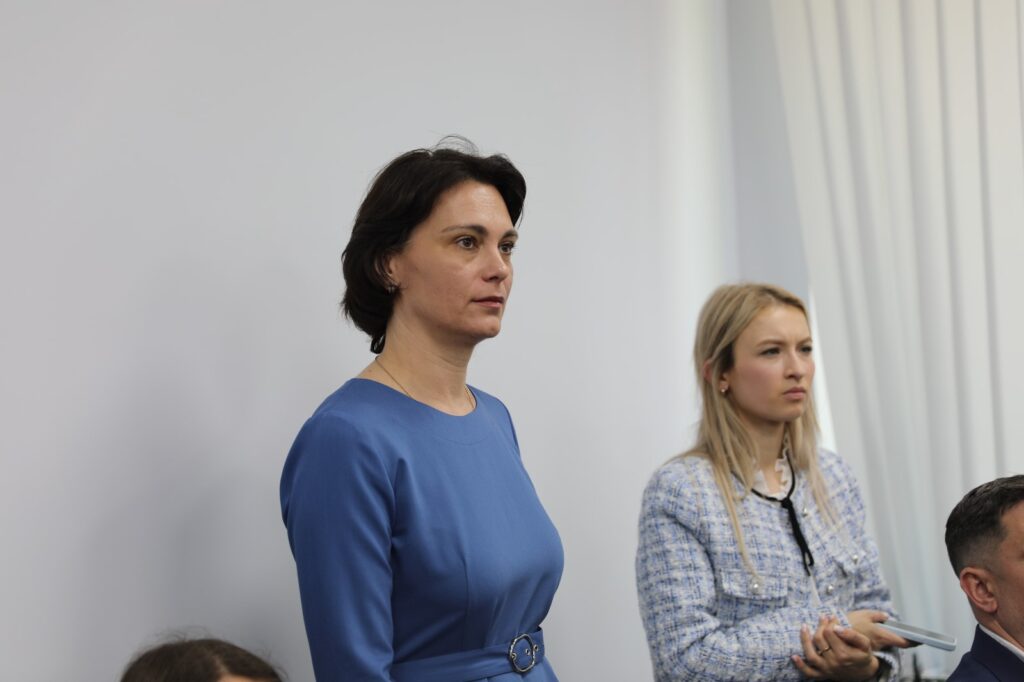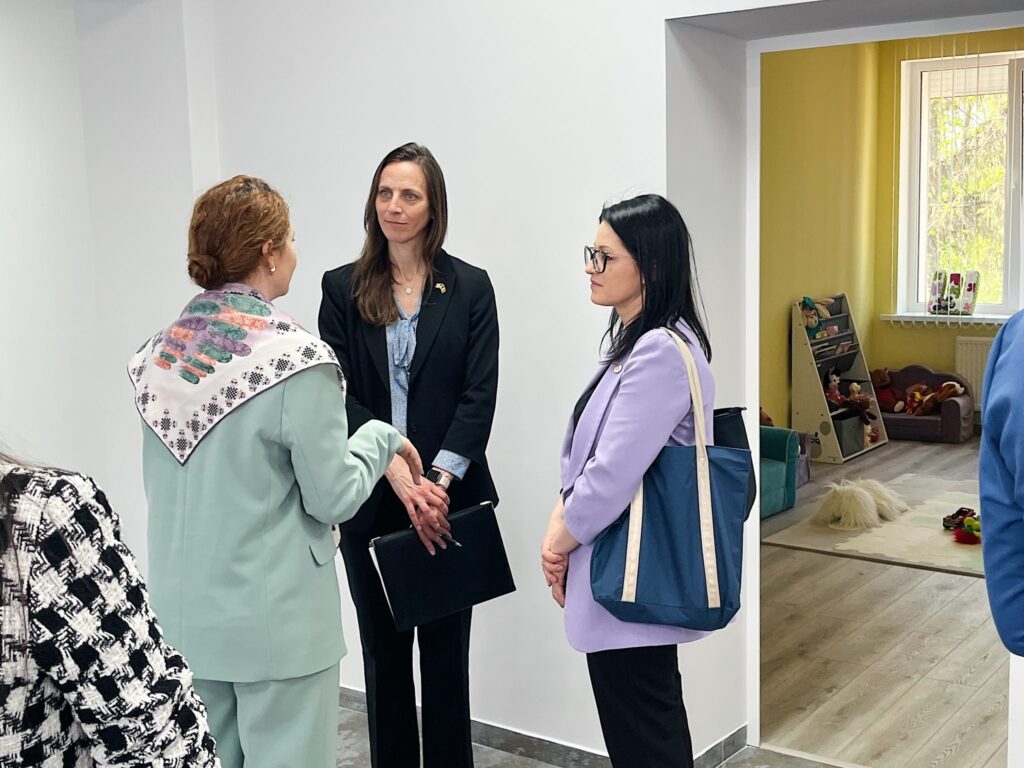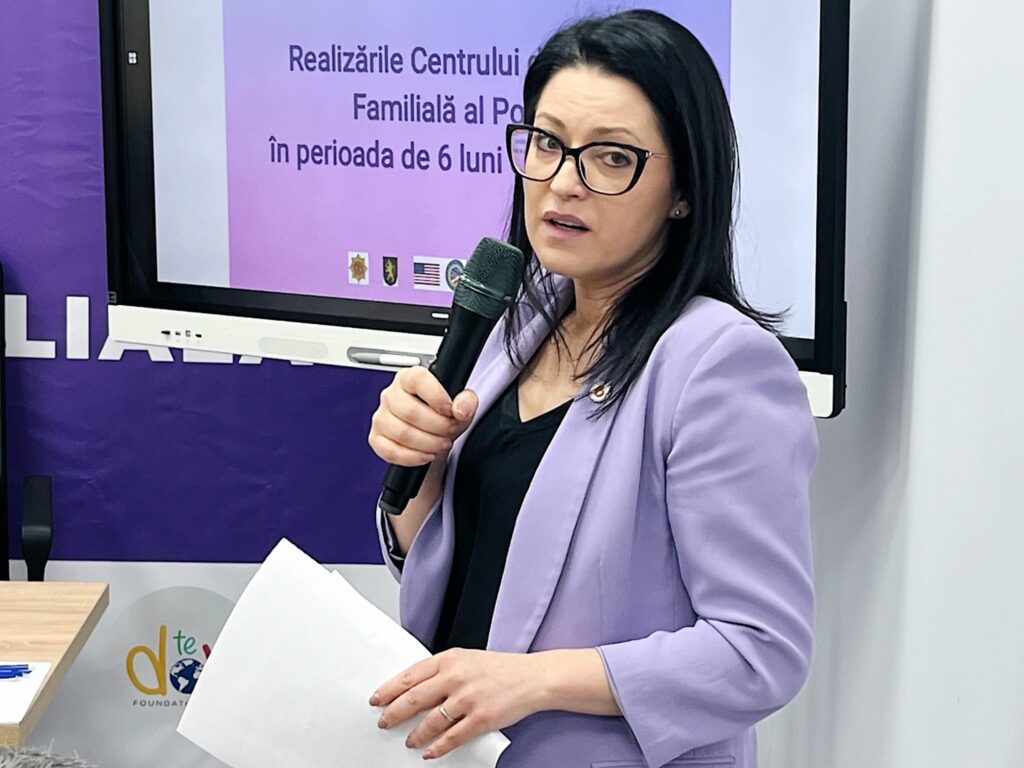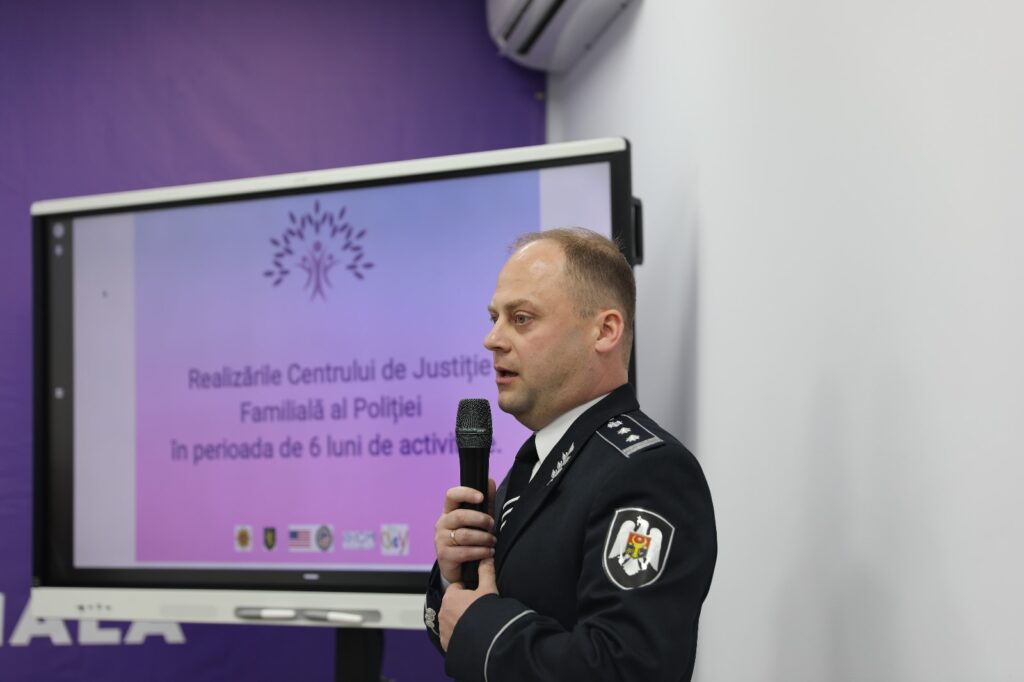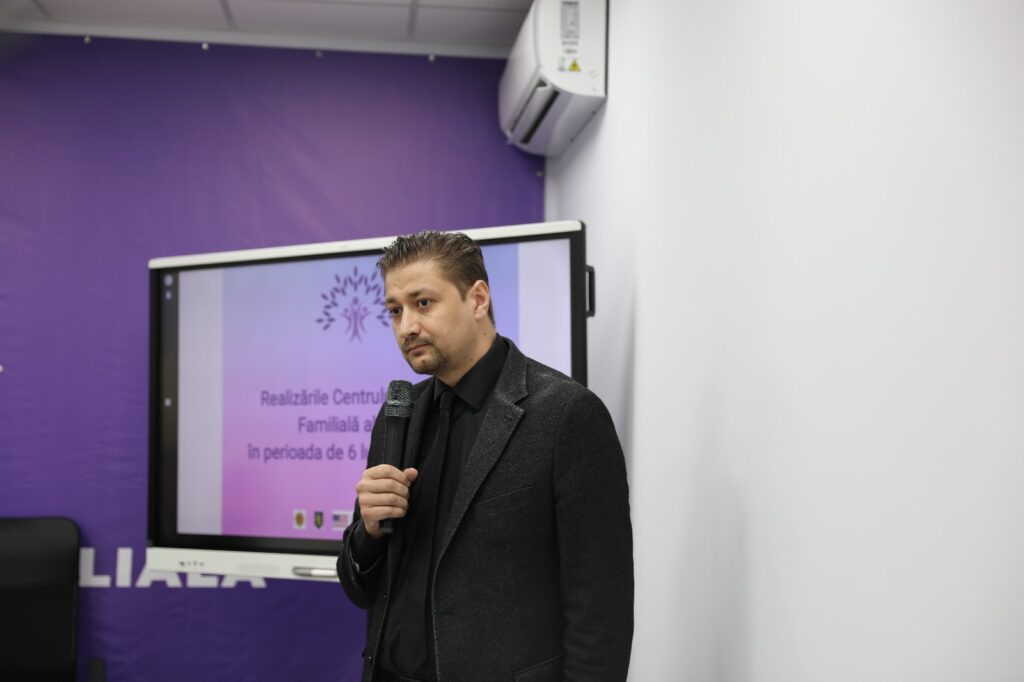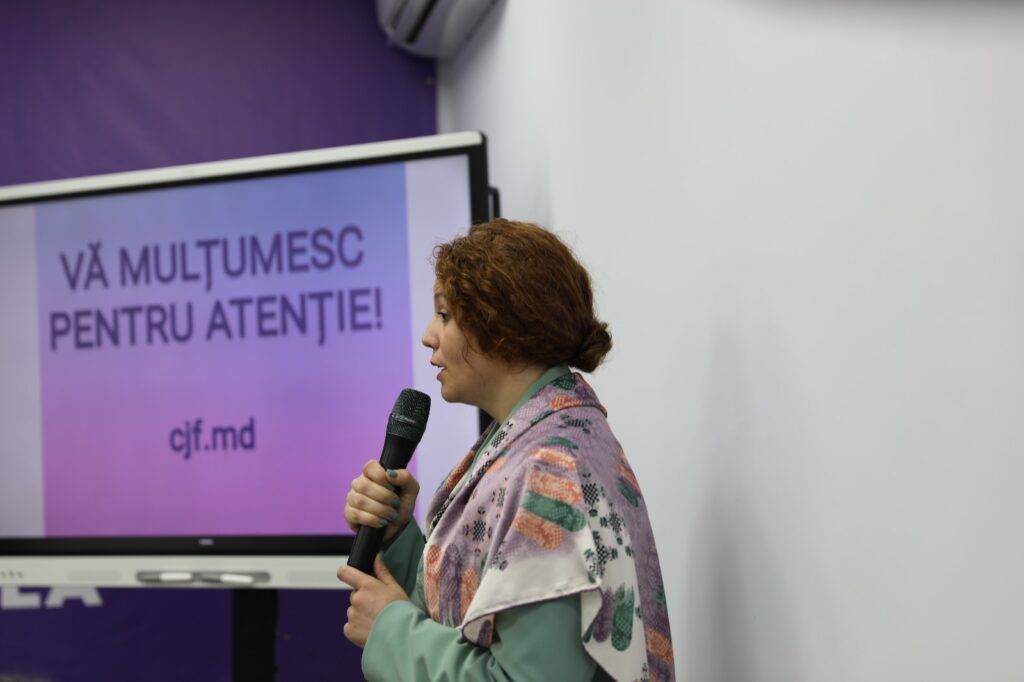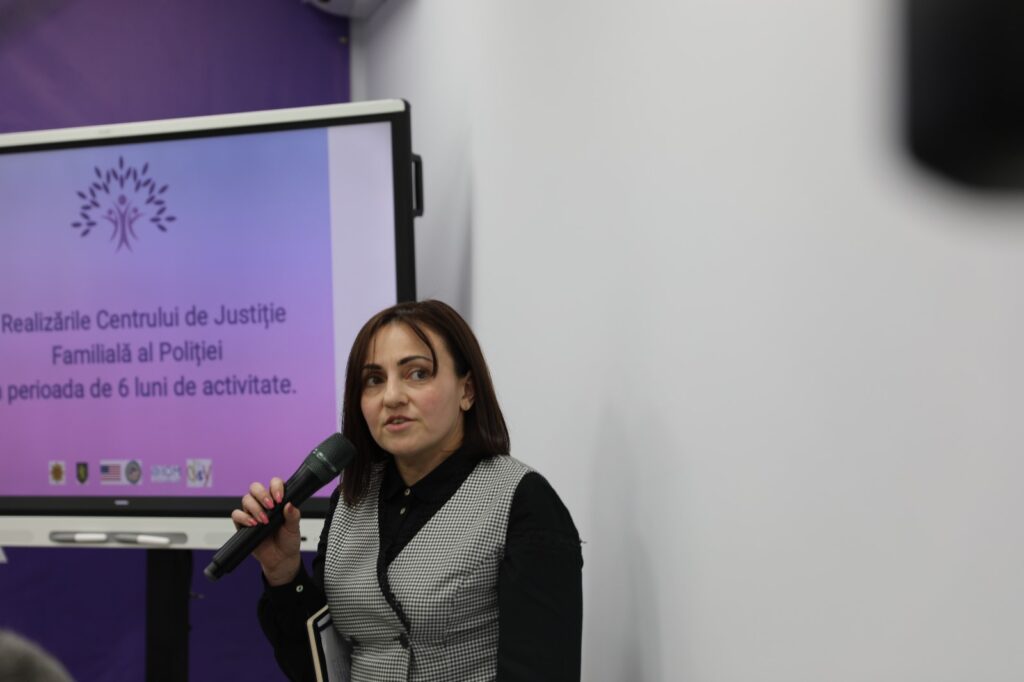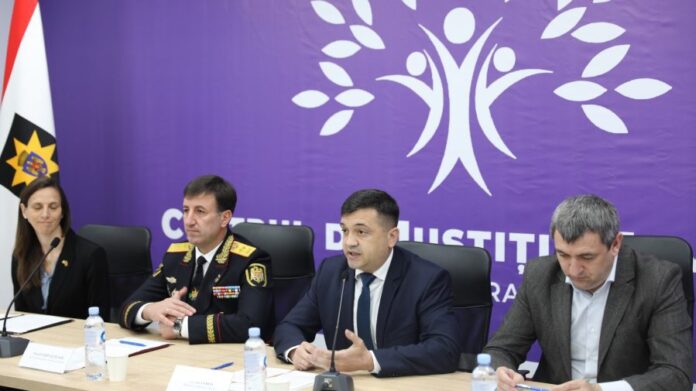Just 6 months after opening, the Police Family Justice Center (FJC) is becoming an anchor for those affected by family and sexual violence. The initiative, which resulted from collaboration between the authorities, civil society, and Moldova’s development partners, has provided a refuge of trust and safety for those at risk within their families.
“Surely we will join forces and fight this scourge, and women will gain the courage to say no and denounce it so that this phenomenon is stopped in our society,” said Lilian Carp, Chairman of the Parliamentary Committee on National Security, Defence and Public Order, at the presentation of the 6-month report of the FJC, referring to the phenomenon of family and sexual violence.
“More than 180 people have already received integrated assistance within the Centre. In a single building, the police together with social workers, psychologists, and forensic doctors are all on duty 24 hours a day and ready to provide the necessary support to victims. The Ministry of Internal Affairs has resumed the campaign to raise awareness of this scourge and to encourage all victims to turn to the Police Family Justice Center,” said Adrian Efros, Minister of Internal Affairs.
“Thanks to this vital resource, victims of domestic and other forms of violence and their children have access to a range of specialized services and stigma-free assistance in one place. A society is strong only to the extent that its most vulnerable members are strong, in this sense the Center provides comprehensive support”, explained Laura Hruby, Deputy Head of the US Embassy Mission in Chisinau.
“We found that in these 6 months, the concept of thinking that was the foundation of these institutions has materialized in two aspects of what a victim of domestic violence needs: the quality of services provided and guaranteeing the confidentiality of what happened”, reported Viorel Cernauteanu, Chief of the General Inspectorate of Police of the MAI.
During the event, Ivan Cretu, the director of the FJC, reported that for 6 months the Center had been notified of 180 cases in which intervention had been requested, 149 of which fell under the direct competence of the institution. The 149 managed cases involved different forms of domestic violence: physical (11); physical and psychological (97); physical psychological and economic (7); physical psychological, economic, and sexual (previously) (2); psychological (22); sexual (8); and digital (2).
FOR THE MOST IMPORTANT NEWS, FOLLOW US ON TWITTER!
The number of cases varies according to the age category of the affected persons:
- 18-25 years (19 cases);
- 26-30 years (21 cases);
- 31-40 years (55 cases);
- 41-50 years (23 cases);
- 51-60 years (9 cases);
- 61-70 years (11 cases);
- 71-75 years (9 cases);
- 80-85 years (1 case);
- 90 years (1 case).
Out of the total number of registered cases, 60 victims were subjected to violence by their husband/wife, 41 by their cohabitant/cohabitant, 17 by their son-in-law/daughter-in-law, 1 by their son-in-law/daughter-in-law, 6 by their nephew/niece, 5 by their father/mother, 11 by their ex-husband/ex-wife, 5 by their sister/brother, 5 by their neighbor/unknown person, 1 by their cohabitant, 1 by their mother-in-law/ father-in-law and 1 by their brother-in-law/ sister-in-law.
The FJC team in its area of coverage, Chisinau municipality and suburbs, intervened promptly with medical and legal support necessary to stop the repetition of acts of violence. In this region, 76 emergency restraining orders were issued at the request of the FJC, ensuring the immediate safety of victims and their family members, and helping to prevent further incidents of domestic violence.
A total of 84 applications for a protection order were submitted to the court, of which 76 protection orders were subsequently issued, 2 were rejected and 6 others are in the process of being examined, according to data presented by the Ministry of Interior. Of these protection orders issued by the court, 9 were valid for 30 days, 2 for 45 days, 9 for 60 days, and 56 for 90 days.
Following the analysis of these cases, the need for judicial/forensic expert intervention was found in 18 cases, 12 of which were carried out by experts within the FJC, and the other 6 were carried out within the Forensic Medicine Center.
At the same time, 9 victims of domestic violence were referred to public medical institutions, 19 victims to placement centers, 69 to social assistance directorates, and 54 to territorial directorates for child protection.
To request the intervention of the Police Family Justice Center team, call 112 or the Women and Girls’ Helpline – 0 8008 8008.
